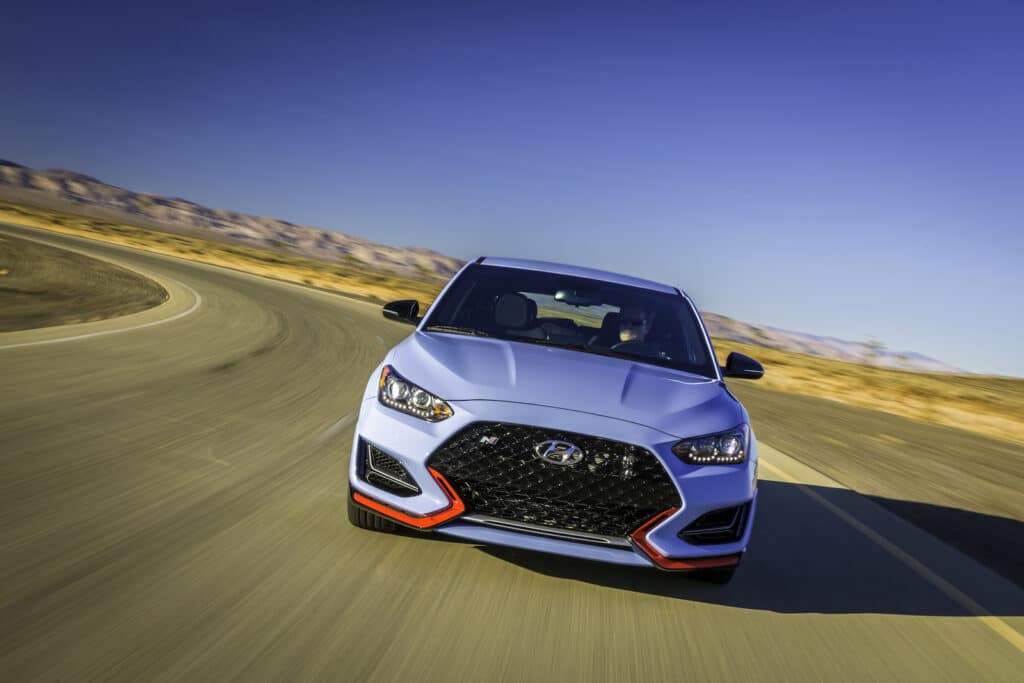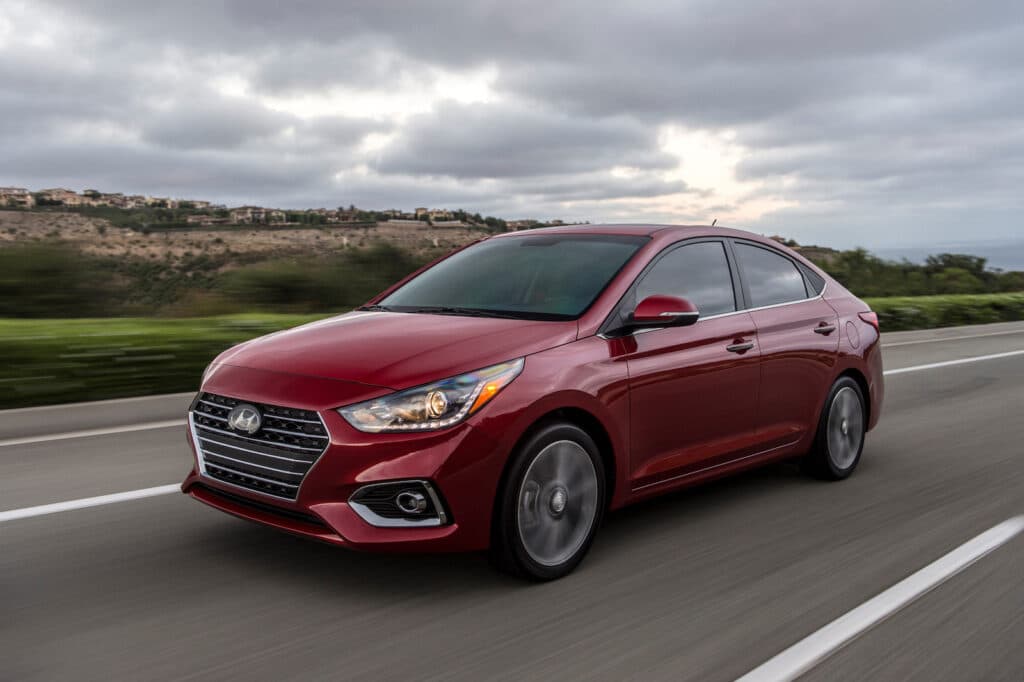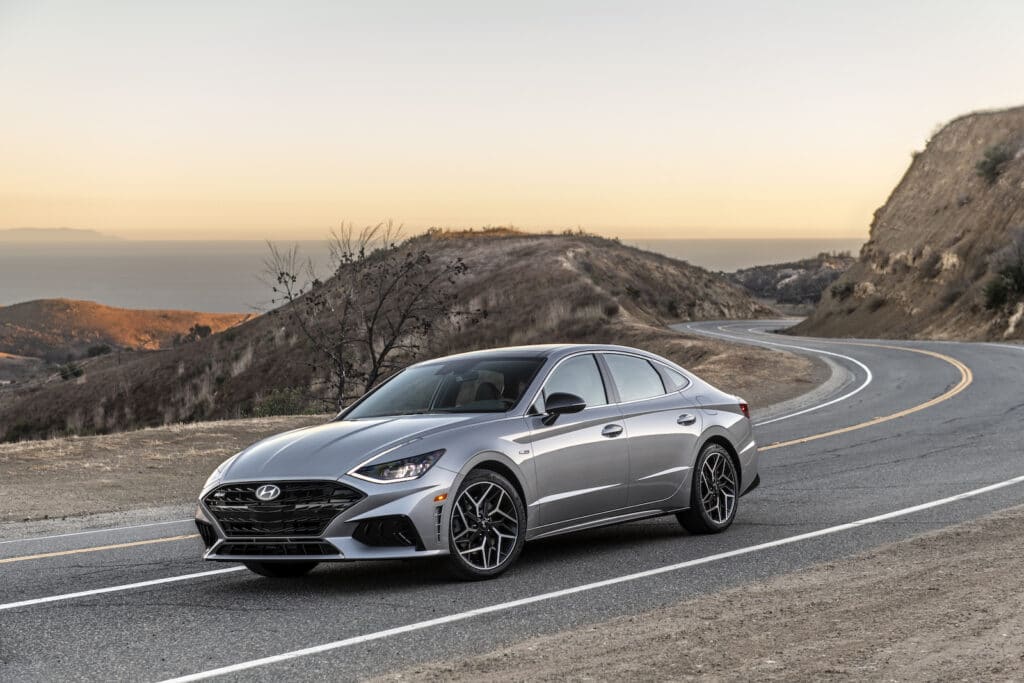With the new car market expected to continue shifting to SUVs and CUVs, Hyundai took an ax — again — to its passenger car line-up.

When the 2023 models begin rolling into showrooms in the months ahead, several familiar nameplates will be missing from the South Korean carmaker’s line-up, including the subcompact Accent sedan, the compact Veloster N hatchback and the two remaining versions of the original Ioniq compact model, Hyundai announced.
The automaker previously trimmed its passenger car line-up, among other things cutting the more mainstream version of the Veloster, as well as the all-electric version of the original Ioniq. For now, at least, Hyundai will retain its two best-selling passenger cars, the compact Elantra and midsize Sonata — though there have been reports from South Korea suggesting they, too, could be at risk.
“Like some of our competitors, we have decided to stay in the passenger car business, and some of our best-performing vehicles, like Elantra or like Sonata, are still doing quite well,” Jose Munoz, the Hyundai Motor Co. chief operating officer and CEO of Hyundai Motor America, said during an event at the company’s Michigan R&D center this week.
A vanishing act
Automakers, in general, have been cutting back on passenger cars as U.S. motorists continue migrating to utility vehicles, as well as pickups and other light trucks. And that trend is expected to continue through at least 2026, John Murphy, the lead auto analyst with Bank of America Securities, said during a presentation to the Automotive Press Association on Thursday.

Ford eliminated all but its Mustang, while General Motors has only a handful of sedans left in its Chevrolet and Cadillac brands.
Asian automakers, including Hyundai and sibling Kia, as well as Toyota, Nissan and Honda, hoped to pick up some of the sedan business dropped by the domestics. But with the continuing market shift, Hyundai apparently concluded it had to further pare back. And June sales numbers support that decision. Sonata sales were down 64% year-over-year, Elantra posting a 34% decline — though a lack of inventory contributed to the weak performance.
Could Elantra, Sonata be next?
Some observers believe even those two mainstay sedans could be at risk. In May, South Korea’s Chosun Ilbo newspaper reported the Hyundai Sonata could be pared from the line-up in the next year or two. The publication also quoted unnamed sources claiming sibling brand Kia would drop both the Stinger and K5 sedans.
Officials with the two brands denied the Chosun Ilbo report. But both Kia and Hyundai continue to shift product directions. But that transition doesn’t mean walking away entirely from passenger cars. If anything, Hyundai this week released the first full images of its Ioniq 6 model, an all-electric, Sonata-sized sedan some believe will eventually replace the conventionally powered model.

What’s clear is that Hyundai is betting on both battery-electric vehicles and crossovers moving forward. Its CUV line-up has grown substantially during the last few years, with the Venue positioned to pick up small-car buyers who might previously have opted for the Accent. At the top side of the crossover family is the big Palisade, now one of the brand’s best-sellers.
An electrified future
Hyundai is also in the process of expanding its line-up of alternative-fueled models. A large share of its 2023 models will be hybridized– some with conventional HEV drivetrains, some with plug-in options, some with both options. And the Kona crossover will be available with both gas and all-electric drivelines.
But Hyundai’s big push will come with the rollout of new Ioniq battery-electric models. That started last year with the launch of the Ioniq 5 crossover — which was named World Car of the Year during a ceremony at the New York International Auto Show in April. The automaker has now confirmed the next two Ioniq models will be the Ioniq 6 sedan and the Palisade-sized Ioniq 7 crossover.
A number of other BEVs sharing the same underlying E-GMP platform are in the works. All told, Hyundai expects to have 11 battery-electric models in its line-up before the end of the decade, though not all will carry the Ioniq badge. Together with the Kia and Genesis brands, the parent Hyundai Motor Group expects to be selling 3 million BEVs annually by 2030.







